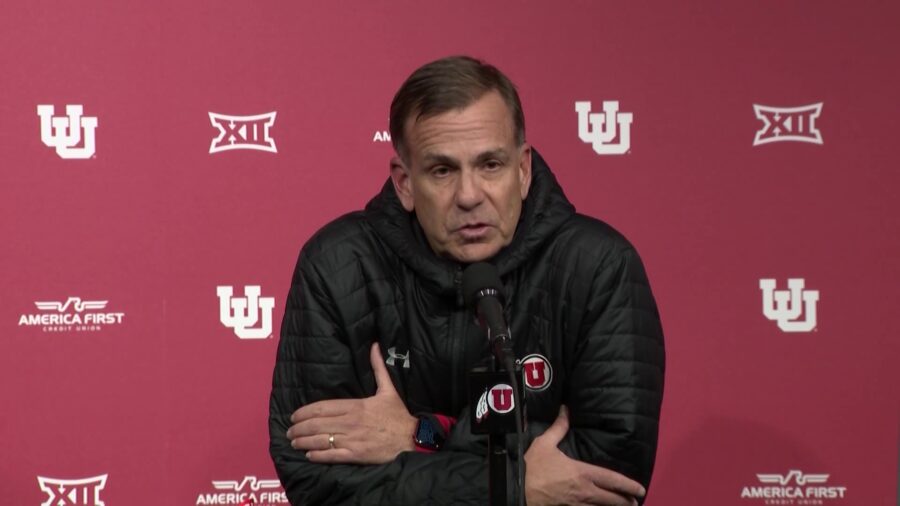
Do you operate from a win/win or a win/lose paradigm? In other words, do you embrace an abundance or a scarcity mentality?
You’re My Competition!
About eight years ago, I had an interesting encounter with another public relations professional at a business networking event in Scottsdale, Arizona. As soon as she learned we were in the same profession, she curtly said, “You’re my competition.”
That comment caught me completely off guard. Usually, there’s great camaraderie among public relations/communications pros. We all have our specialties and unique expertise. (Here’s what AuthenticityPR offers.) There are local PR chapters of the Public Relations Society of America (PRSA) nationwide where PR pros gather at regular chapter events and learn together from a guest speaker.
But this PR woman’s small-minded comment killed any further conversation. We moved on to interact among the 80 or so others at this event, with her most likely hoping she wouldn’t meet any more of her dreaded “competition.” There certainly had to be supposed safer waters elsewhere.
Well, I hope she went on to a happy and prosperous career — but I’m not sure if that was even possible. You make life harder for yourself when you have a me-centered mindset, as I previously share in this blog post.
Have an Abundance Mentality
Are you familiar with Stephen R. Covey’s concept of the “Abundance Mentality” — discussed in his seminal work, “The 7 Habits of Highly Effective People”? It’s a timeless principle from one of the world’s most savvy business and personal relationship advisors to ever walk the earth.
Covey and other business experts emphasize the importance of cultivating an abundance mentality in both personal and professional contexts. Covey says the abundance mentality is the belief that there are enough resources and success to share with everyone, as opposed to the scarcity mentality, which views life as a zero-sum game where one person’s gain is another’s loss.
Key Points of the Abundance Mentality
Here are three key points to consider and ponder as you try to embrace an abundance mentality:
- Think Win-Win: Covey’s fourth habit, “Think Win-Win,” is rooted in the abundance mentality. This habit encourages individuals to seek solutions that benefit all parties involved, rather than viewing situations as zero-sum games where one person’s gain is another’s loss. This perspective promotes cooperation and builds stronger relationships.
- Personal Growth and Fulfillment: The abundance mentality involves turning personal joy and fulfillment outward. Covey explains that appreciating the uniqueness and proactive nature of others opens up unlimited possibilities for positive interactive growth and development. This mindset helps in creating new alternatives and innovative solutions that benefit everyone involved.
- Integrity and Trust: Integrity is a cornerstone of the abundance mentality. Covey highlights that having a clear sense of values and making and keeping meaningful commitments builds self-awareness and independent will. This foundation of trust is essential for achieving win-win outcomes and fostering genuine human interactions.
Implementing the Abundance Mentality
To cultivate an abundance mentality, Covey and other experts suggest the following strategies:
- Be Proactive: Take initiative and anticipate potential challenges. This helps in maintaining a proactive attitude rather than being reactive.
- Set Clear Goals: Begin with the end in mind by setting clear, achievable goals. This clarity helps in staying focused and motivated.
- Prioritize Effectively: Focus on what is most important and urgent, balancing immediate tasks with long-term objectives.
- Celebrate Successes: Recognize and celebrate the achievements of others. This practice not only builds a positive environment but also reinforces your own sense of accomplishment and worth.
Strategic Alliances… With Competition
Embracing this powerful principle — associating with your competition — can benefit your business.
For example, my storytelling wife Leticia met storyteller John Beach in 1992 when they were both invited to tell stories at a storytelling festival in Logan, UT. They connected over the challenges of that previously untried outdoor venue, laughing and sloshing through the grass that was soggy not only from the previous night’s rain but also the subsequent uncanceled automatic sprinklers!
Though from different states, they stayed in contact and encouraged each other’s storytelling endeavors. John generously began inviting Leticia to join him in storytelling opportunities. This led them to collaborate on projects, as well as recommend each other for events, which generated more income. Leticia’s grateful for his example and their mutual cooperation that brought not only professional storytelling opportunities but also an enduring friendship.
None of this would have been possible in a scarcity paradigm. It began with the first step of John reaching out with an abundance mindset.
Your 3 Takeaways
- Be open to opportunities to embrace an abundance mentality.
- Connect with others in your profession.
- By lifting others, you’ll lift yourself.
May we all have an abundance of gratitude in our business and personal lives.
Need ideas on how you can benefit from strategic alliances? Schedule a complimentary 1:1 Zoom call with me here.
Additional Abundant Mentality Reading
For further reading on the abundance mentality and its application in business and personal life, check out:
- Forbes: Abundance Mindset: Leading From A Place Of Possibility
- Entrepreneur Magazine: Cultivating an Abundance Mindset: From Scarcity to Prosperity
These resources provide deeper insights into how embracing an abundance mentality can transform your approach to business and enhance your overall effectiveness.
Stay Authentic! (And rejoice daily in your abundance, as well as that of others.)

Jeffery E. Pizzino, APR is a spin-free public relations pro who is passionate about telling the why of your story with clarity, impact and authenticity. He began his PR career in 1987 at Ketchum Public Relations in New York City but has spent the majority of his career as a solopreneur. He’s AuthenticityPR’s Chief Authentic Officer and also functions as the fractional CCO for technology startup Converus.
Jeff has an MBA in Management from Western International University and a Bachelor of Arts degree in Communications — with an emphasis in PR — from Brigham Young University. He’s a native of Milwaukee, Wisconsin, but also holds an Italian citizenship. Jeff and his storyteller wife Leticia have four children and four grandchildren. In his extremely limited nonwork hours, he studies italiano, practices guitar, gardens, disc golfs, reads, listens to New Wave music, serves in his church, watches BYU football, and plays Dominion and Seven Wonders. Email Jeff.

